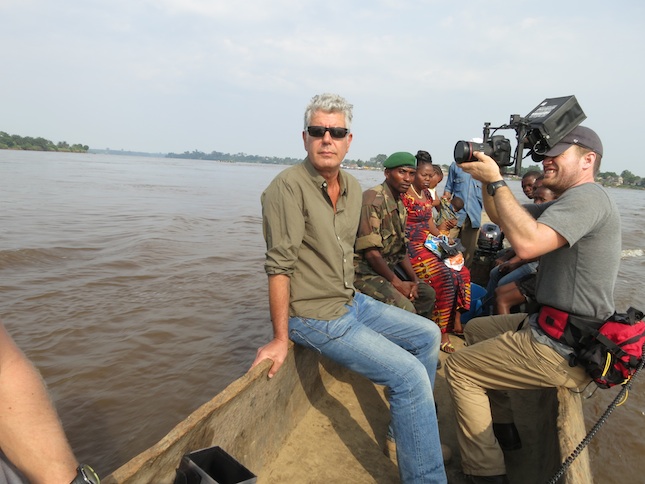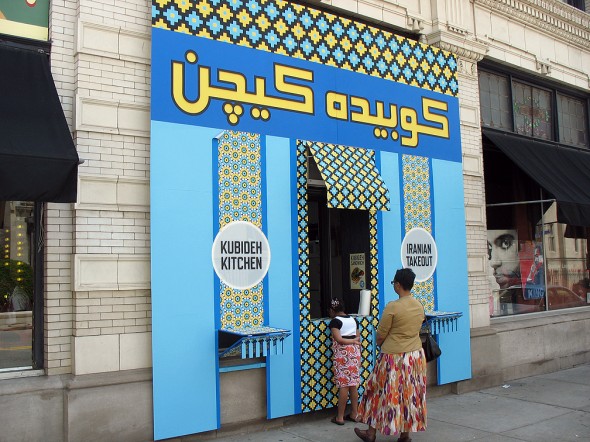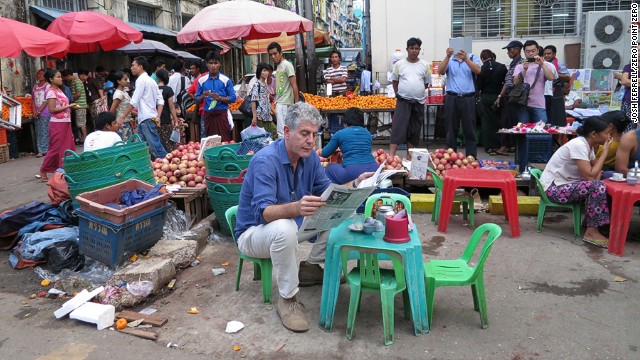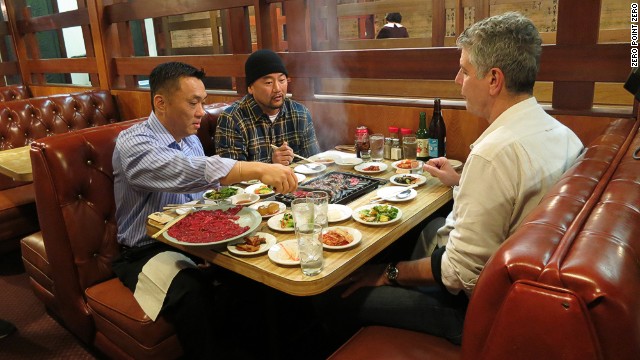Anthony Bourdain has been many things over his long career. Line cook, chef, restaurateur, author, TV host. For the past ten years, he has moonlighted in another less-discussed role: gastrodiplomat. Starting with the travel and writing he did for his second book A Cook’s Tour, and continuing through his most recent show on CNN, Parts Unknown, Bourdain has actively engaged in culinary diplomacy, whether he knows it or not.

Culinary diplomacy, also known as gastrodiplomacy, is the practice of using food and cuisine as an instrument to create cross-cultural understanding in the hopes of improving interactions and cooperation. It has been used throughout history, from the public luncheons of ancient Greece sealing peace treaties; to the use of haute cuisine by French ambassador Talleyrand to negotiate at the Congress of Vienna; to modern day projects by the governments of South Korea, Thailand, Peru, the US, and more, encouraging others to learn more about their cultures through food. It also works at a more citizen-to-citizen level, like at the Conflict Kitchen, a take-out restaurant in Pittsburgh and Oakland serving up food and stories from countries with whom the US is in conflict (so far, they have focused on Iran, Afghanistan, Cuba, and Venezuela). It is at this level that Bourdain has taken on the mantle of the culinary diplomat.

A Cook’s Tour, both the book and TV show, opened up a world of food that many of us in the US did not know about. Iguana tacos, desert-roasted lamb, and beating cobra hearts set off a decade of food tourism, encouraging a nascent food-loving America to pursue “the perfect meal.” It also brought us close to the people making and eating those meals. Bourdain has such a disarming and casual way of engaging with people, and writing about his experiences, that although some of the dishes seemed foreign, his interlocutors became real to the American audience. Even if you have never met, and never will, a Berber nomad, you can still see how they live and eat, not in a National Geographic anthropological outsider-looking-in kind of way but in a visceral What-they’re-cooking-looks-delicious-and-I’d-love-to-share-it-with-them kind of way. Bourdain served as the intermediary, the American who is willing and able to travel the world to give us new food experiences that many of us will never be able to get.
Bourdain has continued his career as gastrodiplomat in his newest show, Parts Unknown, and takes it a step further. Not only is he taking us to places we’ll probably never go, he’s taking us places no Americans go, at least in half the episodes. His “exotic global destinations” (in quotes, of course — exotic to some is home to others) include Myanmar, Libya, and Congo. The first episode brought us to Yangon, the largest city in Myanmar, where we met political dissidents, cooks, and rock ‘n’ rollers. Through his conversations with these people about food and life in Myanmar, we can start to gain mental traction into a country and culture with which few Americans have any experience. Next time we read an article about a government crackdown, a democratic opening, or a speech by democracy advocate Aung San Suu Kyi, we’ll have more knowledge and a concrete idea of not only where Myanmar is, but who its people are and what they eat.

The second episode brought us closer to home, to Koreatown, Los Angeles. Bourdain defended his choice to find something “new” in LA on his blog, where he claims that although “Of all the locations on earth, Los Angeles has probably appeared on film or tape or memory card more than any other,” he wanted to show us the tightly-knit, and generally inaccessible, Koreatown. It’s a treat for us, since we get to learn about the origin of one of the standard bearers of citizen gastrodiplomacy, the Korean taco. We can also start to understand a piece of our own American history through a different lens, as we learn how the LA riots of 1992 affected the three square miles of Koreatown. It is a fascinating insight into another American experience, one from which we can all benefit.

Parts Unknown may encourage a few viewers to travel in Bourdain’s footsteps, in order to try the Burmese salads and Korean tacos of the show. The rest of us, though, can be satisfied to watch and learn, and to perhaps go out of our own culinary comfort zones to try some of the foods he mentions in our own communities. If Bourdain has helped us to better understand the difficulties of playing rock ‘n’ roll in Myanmar, or the lingering effects of the LA riots on Koreatown, or even just the ingredients for really good bulgogi, he has successfully done his job as a gastrodiplomat.
2 Responses
James Knuckles
Great post! I’m a big Bourdain fan (remember “No Reservations”? That was a great show) and he is definitely a culinary diplomat that America can be proud of.
On a side note — I’m not sure I like the term gastrodiplomat/cy. It reminds me of gastro[insert medical term here like -ectomy or -enterology]…
samuelchapplesokol
Thanks, James. And on the term “gastrodiplomacy,” you should talk to Paul Rockower about that…
http://www.huffingtonpost.com/paul-rockower/the-gastrodiplomacy-cookb_b_716555.html